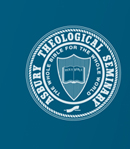Abstract
In Acts 19:11-20 two main events are set beside one another. The first event tells of the miracles performed by God through the hands of Paul. The second event is the story of the failed exorcism attempt by the sons of Sceva. This article argues that Luke’s purpose in the juxtaposition of the two events is to clarify for the audience the difference between magic and miracle. Key evidence for this interpretation is found in the intertextual relationship between Luke’s terminology and ancient magical literature. Additionally, the rhetorical feature of synkrisis (encomium/invective) further supports the thesis. Luke does not just resist syncretism. Even further, he writes an invective against the use of magical practices as an attempt to generate the same result as what God was doing through Paul’s hands. This is supported by the effect on the original audience who responds by burning their magical books.
DOI
10.7252/Journal.02.2022F.13
Recommended Citation
Vaughan, Joy
(2022)
"Bringing Evidence to the “Anti-magic” View: A Socio-rhetorical Interpretation of Acts 19:11-20,"
The Asbury Theological Journal:
Vol. 77:
No.
2, p. 416-444.
Available at:
https://place.asburyseminary.edu/asburyjournal/vol77/iss2/14
Included in
Biblical Studies Commons, Christian Denominations and Sects Commons, Missions and World Christianity Commons

